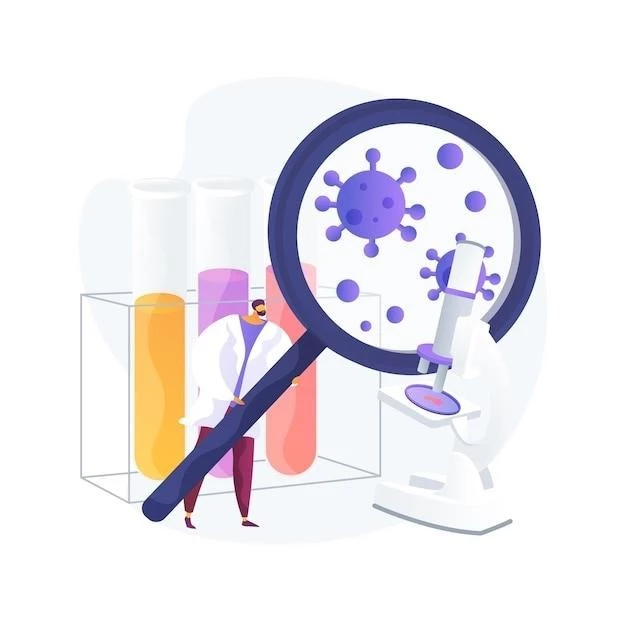Overview of Severe Combined Immunodeficiency (SCID)
Severe combined immunodeficiency (SCID) is a primary immunodeficiency disorder involving both humoral and cellular immunity deficiencies. It is a rare genetic disorder resulting in a weak immune system unable to fight infections effectively.
Definition and Characterization of SCID
Severe Combined Immunodeficiency (SCID) is a rare genetic disorder that affects both humoral and cellular immunity, resulting in a weak immune system incapable of effectively fighting infections. SCID involves defective T and B cell development due to genetic mutations, leading to varied clinical presentations.

Genetic Basis of SCID
Severe combined immunodeficiency (SCID) is a rare genetic disorder caused by mutations affecting the development of T cells and B cells, leading to a compromised immune system.
Various Genetic Mutations Leading to SCID
Severe Combined Immunodeficiency (SCID) is caused by a variety of genetic mutations that disrupt the development and function of immune cells, particularly T and B cells, resulting in a compromised immune system unable to defend against infections effectively.
Clinical Presentation of SCID
Severe Combined Immunodeficiency (SCID) manifests with a compromised immune system, making individuals susceptible to severe infections due to deficiencies in both humoral and cellular immunity components.
Symptoms and Manifestations of SCID
Severe Combined Immunodeficiency (SCID) presents with various symptoms including recurrent severe infections, failure to thrive, chronic diarrhea, and persistent respiratory issues. Infants with SCID are highly susceptible to life-threatening infections due to compromised immune responses.
Types of SCID
Severe combined immunodeficiency (SCID) can be categorized as typical SCID or, if less severe, leaky SCID based on the severity of T cell deficiencies, impacting immune response effectiveness.
Typical SCID vs. Leaky SCID
Severe Combined Immunodeficiency (SCID) is categorized into typical SCID or leaky SCID based on the severity of T cell deficiencies. Typical SCID presents with profound immune system impairment, while leaky SCID exhibits milder immune dysfunction, allowing for some immune response but still resulting in susceptibility to infections.
Importance of Newborn Screening for SCID
Severe combined immunodeficiency (SCID) requires early detection through newborn screening to prevent life-threatening infections and provide timely treatment options to ensure the well-being of affected infants.
Early Diagnosis and Treatment through Newborn Screening
Newborn screening for Severe Combined Immunodeficiency (SCID) plays a crucial role in early diagnosis, enabling timely interventions such as bone marrow transplants to address the immune system dysfunction in affected infants, ultimately ensuring better outcomes and quality of life.
Severe Combined Immunodeficiency (SCID) is diagnosed through a series of tests evaluating the immune system’s function, including T and B cell levels, genetic analysis for mutations, and immune response assessments to determine the extent of immunodeficiency.
Diagnosis and Testing for SCID
Severe Combined Immunodeficiency (SCID) is diagnosed through various methods including genetic analysis, immune system function assessment, and monitoring of T and B cell levels. Early and accurate diagnosis is critical for effective treatment strategies.

Treatment Options for SCID
Severe combined immunodeficiency (SCID) treatment includes bone marrow transplantation and gene therapy as primary interventions to restore immune function in affected individuals.
Bone Marrow Transplantation and Gene Therapy
Severe Combined Immunodeficiency (SCID) treatment often involves bone marrow transplantation to replace defective immune cells with healthy ones. Another emerging treatment is gene therapy, aiming to correct genetic mutations responsible for SCID, thereby restoring normal immune function.
Prognosis and Complications of SCID
Severe combined immunodeficiency (SCID) presents a challenging prognosis due to the profound immune deficiency it causes, leading to complications such as recurrent infections and other associated disorders.
Long-term Outlook and Potential Complications
The long-term prognosis for individuals with Severe Combined Immunodeficiency (SCID) is challenging, with potential complications including recurrent infections, failure to thrive, and the development of associated disorders due to the profound immune deficiency.
Inheritance Patterns of SCID
Severe combined immunodeficiency (SCID) can be inherited in various ways, such as X-linked recessive or autosomal recessive, impacting the function of T cells and leading to a weak immune system.
X-linked Recessive and Autosomal Recessive Inheritance
Severe Combined Immunodeficiency (SCID) can be inherited through X-linked recessive or autosomal recessive patterns, affecting T cell function and contributing to the weakened immune response seen in affected individuals.
Impact on Immune System Function
Severe combined immunodeficiency (SCID) affects T cells, B cells, and NK cells, leading to a weakened immune system unable to fight off infections effectively.
Effects on T Cells, B Cells, and NK Cells
Severe Combined Immunodeficiency (SCID) impacts T cells, B cells, and NK cells, leading to a compromised immune system and heightened susceptibility to severe infections.
Epidemiology and Prevalence of SCID
Severe combined immunodeficiency (SCID) incidence varies between 1 in 50,000 to 1 in 100,000 births, making it a rare genetic disorder with significant impact on affected individuals.
Occurrence and Rarity of SCID in the Population
Severe combined immunodeficiency (SCID) has an incidence ranging from 1 in 50,000 to 1 in 100,000 births, making it a rare genetic disorder with significant impact on the affected population.
Case Studies and Personal Stories of Individuals with SCID
Real-life experiences and challenges faced by individuals living with Severe Combined Immunodeficiency (SCID) provide insight into the impact of this rare genetic disorder on their lives and the importance of early diagnosis and treatment.
Real-life Experiences and Challenges Faced by SCID Patients
Personal stories and case studies shed light on the daily challenges and struggles experienced by individuals living with Severe Combined Immunodeficiency (SCID), emphasizing the importance of early detection and access to appropriate treatment.
Research and Developments in the Field of SCID
Advancements in understanding and treating Severe Combined Immunodeficiency (SCID) continue to progress, with ongoing research focusing on genetic mutations, immune cell development, and innovative therapeutic approaches to improve outcomes for affected individuals.
Advancements in Understanding and Treating SCID
Ongoing research efforts continue to advance the understanding and treatment of Severe Combined Immunodeficiency (SCID), focusing on genetic mutations, immune cell function, and novel therapeutic strategies to improve outcomes for affected individuals.
